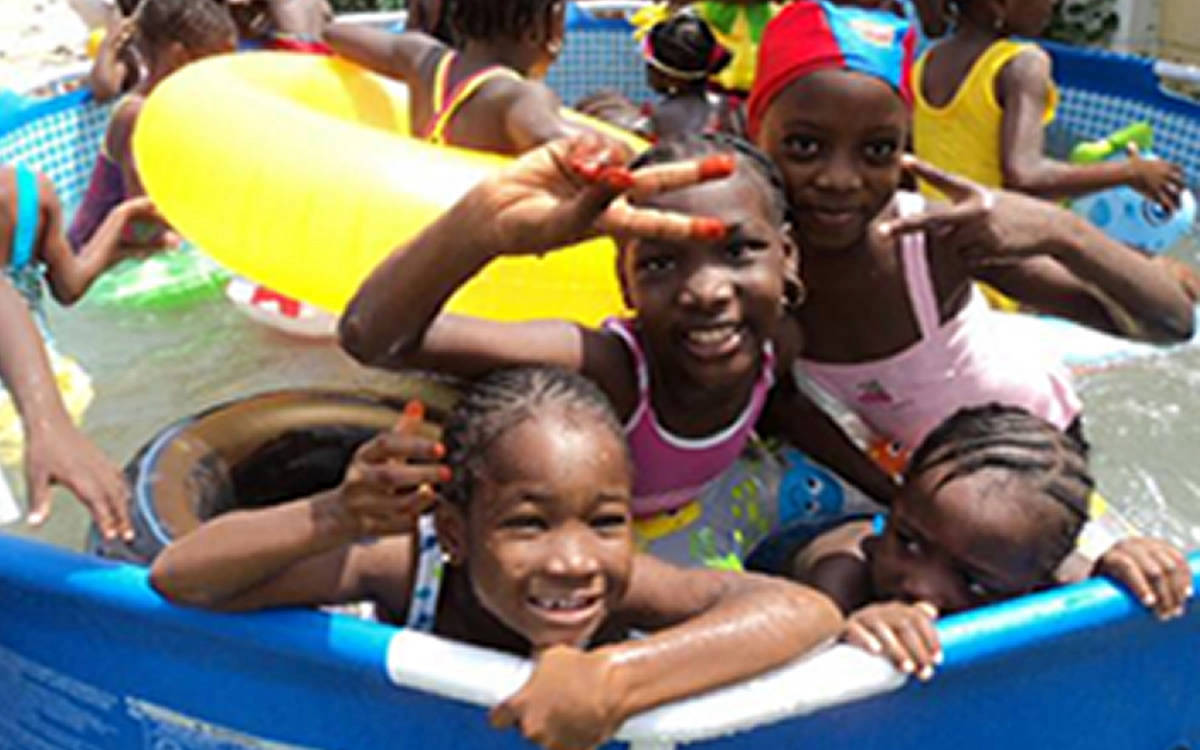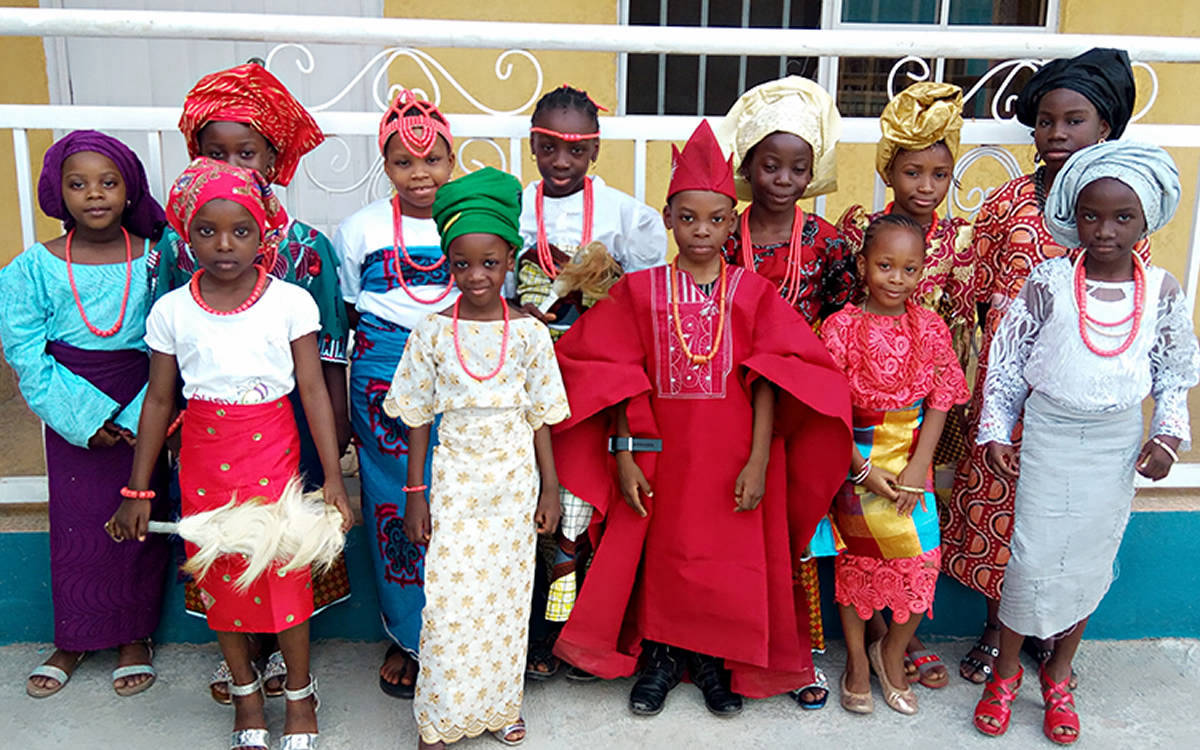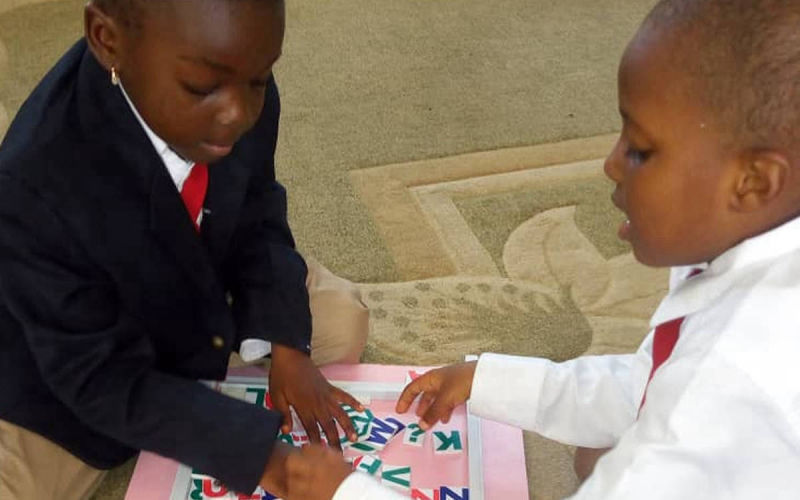The
school has four sections.
They are:
Preschool community: Comprises the playgroup community and the preparatory
class: This class is for children 18-36 months of age. The preschool section is
designed to accommodate the young pupils into a friendly and child centered
enviroment, using Montessori principles and applications. We focus our
attention on all necessary skills needed to develop the pupils. It runs from
6:00am to 1;30pm.
Nursery/children's house: A blend of the Nigerian curriculum and the British
early years Foundation curriculum and Montessori principles and applications
for children aged 3-5 years of age. The section runs from 8:00am to 2:00pm.
Primary/Basic classes:
The basic section has a blend of Nigerian and British curricular, using Montessori
principles and applications. The school runs from 8:00am to 2:30pm. The school
has 6 basic classes ( basic 1-6) The following are the subjects offered in the
basic section.
Al-Ali International school has commenced secondary education from Jss1-Jss3
Subjects Offered:
1.Mathematics
2.English language
3.Basic Science and Technology
4.Agricultural Science
5.Social Studies
6.Computer Science
7.French
8.Christian Religious Studies
9. Islamic Religious Studies
10.Creative/Cultural Arts
11.Phonics
12.Quantitative Reasoning
13.Verbal Reasoning
14.Physical And Health Education
15.Civic Education
16.Vocational Studies
17.One Nigerian language (yoruba, hausa or igbo)
A
pupil at (AIS) school obtains a world standard, first class education which
fosters a firm foundation for future learning. Top priority is placed on seeing
children learn right things, the right way in the right enviroment.
The school uses a well prepared curriculum for laying a solid academic
foundation for children ages 18 months -11 years.
Montessori method; There are five areas of the Montessori curriculum, Each
preschool classroom is well equipped with materials that aid learning in these
areas. The curricular areas are;
Practical life; This area of the curriculum is designed to invite the young
learner to act and work on real life tasks that foster independence,
coordination, order and concentration. It is in a sense the door way to the
Montessori curriculum. This is the area where the child may choose independent
work.
Sensorial; Dr Montessori saw the sense as the " doorway to the mind".
She considered sensory and manipulation not only as an aid to the development
of maturing sense organs but a starting print for intellectual growth. This exercise
makes children better prepared for future learning in math language, and
science and making sense of life's experiences and information in general.
Mathematics: The central purpose of the math materials in the early years is to
lay the foundation for later cognitive development and to prepare for the
gradual transition to abstract thinking. Montessori students use hands-on
learning materials that make abstract concepts clear and concise.
Language; Development is a concern of the entire Montessori classroom. In the
language area we will find a large variety of reading materials including
materials for phonetic analysis, word attack skills and reading asa well as
materials for the refinement for the refinement of motor control for writing.
In the Montessori method, writing precedes reading, as the children explore
with drawing and forming letters. T he process of learning how to read should
be as painless and simple as learning how to speak. The child begins by
exploring the sounds thta compose words and by relating them to the letters of
the alphabet. He can soon produce words and sentences free of all mechanical
difficulties. In the mean time, he trains his hand to become precise and sure
for writing movements. Reading is prepared indirectly from writing. The child
starts from what he knows about the letters and the sounds, Then we give him
the key to read all the words he can encounter. Reading skills normally develop
so smoothly in Montessori classrooms thta students tend to exhibit a sudden
"reading explosion" which leaves the children and their families
beaming with pride. Dr. Montessori research confirmed what observant parents
have always known, children learn best by touch and manipulation not by
repeating what they are told.
Cultural Work; Science is an integral element of the Montessori curriculum.
among other things, it represents a way of life, a clear thinking approach to
gathering information and problem solving. The scope of the Montessori science
curriculum includes a sound introduction to botany, zoology, chemistry,
physics, geology and astronomy. The Montessori approach to science cultivates
children's fascination with the univers and helps them develop a lifelong
interest in observing nature and discovering more about the world in which we
live.
Our teachers introduce history and geography as early as age . The youngest
students work with specially designed maps and begin to learn the names of the
world's continents and countries. They learn to treasure the richness of their own
cultural heritage and those of their friends. Music and movement education will
also be important parts of the curriculum as well as the arts. They offer
children ways to express themselves, their feelings, experiences and ideas.
Montessori schools are very interesting.
The preparatory, Nursery and Basic classes, Academic year consists of 3
terms.
1. First term==September December
2. Second term == January to March
3. Third term == April to July
ATTENDANCE
It is expected that children will attend school everyday except when illness requires them to stay at home, School requires parents whose children are ill to call Admin department and relay the information. The school will the parent to ask about the welfare of ill children before the end of the day. If the child will be absent from school for any other reason other than illness, parents must inform the school. It is not advised that children miss classes during the term as they miss out on valuable learning.Enrichment programmes are co-curricular activities specially developed and tailored to meet each child's individual needs
TAEKWANDO; The
benefits of physical exercise cannot be over-emphasized. Taekwando means
"the way of the fist and foot". The Do is the important part of the
word and it means "the correct way". If learnt correctly, taekwando
is a very technical martial art which results in students learning learning how
to generate maximum power in relation to their build and size. Watching the
kids form their little fists and kick out those legs is a site to behold. The
outfits can be purchased at the school from the instructor.
MUSIC; Music is a creative ensemble that seeks to engage the senses and
fosters team spirit. In this class children are taught how to play musical
instruments like the piano, violin, recorders, drums and Maracas. They are also
taught theoritical music.
MATHS CAMP; This is a program for children who need extra help with their
numbers work. Experienced teachers in the nursery take this class that is sure
to produce results quickly.
SWIMMING; Learning to swim is so important for the children because
it helps them to keep safe around to keep safe around the water and keeps them
fit and healthy. The children learn balance, stability and concentration. It is
also a social skill that keeps with them throughout life. The children are
expected tp come in with their swim wear, floaters, arm bands, towel, slippers
and extra clothing. Children without all these will not be allowed to take the
class.
FRENCH; It is never too early to introduce the child to language. Children
are most sensitive to language acquisition between the ages of birth to 6years.
The chlidren in the French class will be taught the language and would also go
on field visits where they will be required to use the language. Parents re
encouraged to learn with their kids or surround the kids with people who speak
the language so as to reinforce the kid's learning.
PRESS CLUB; The guiding principle of the club is the firm belief that
every individual has the innate ability to optimize him/herself if given the
opportunity to do so in the right environment. By laying emphasis on the
development of self confidence, social skills, problem solving techniques and a
willingness to attempt new challenges, our child oriented strategies enable us
to serve the child helping him/her achieve their potentials academically and
socially.
Red cross, Girls Guide, Brownie,Boys Scouts would also be introduced in the extra
curricular activities.




